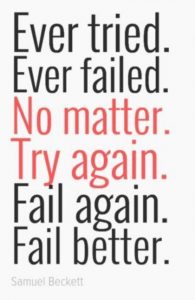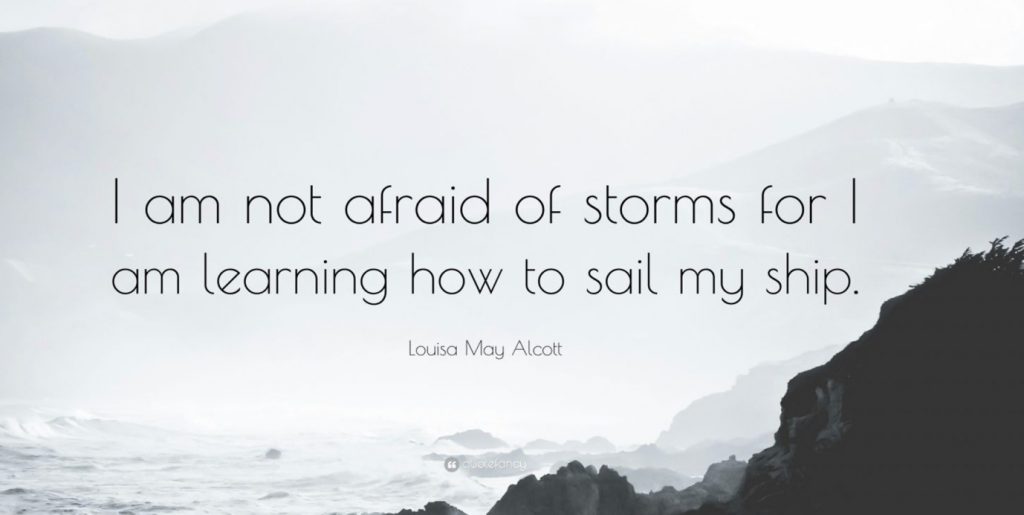This Winter Term the Schools Practice at Odgers Berndtson launches the first series of articles for its new Voices in Education series. These articles are written by a number of leading voices across the schools sector. They have been written to start conversations about important challenges, opportunities and ideas within the schools sector today. In this original article, Ms. Fionnuala Kennedy, Senior Deputy Head at Wimbledon High School GDST, writes about the need to ensure that pastoral care in schools is enabling resilience and not teaching helplessness.
I am realising as I get (inexorably) older that there are certain things at which I have learnt to be entirely helpless. These include but are in no way limited to: replacing the spotlights in my kitchen ceiling; knowing how the staffroom photocopier works; memorising people’s phone numbers; and running 10km. It horrifies me to have had this realisation. I consider myself to be an independent person, capable and well-educated, and yet these are all basic things I can no longer do. They’re not things I could never do, such as dancing en pointe, or flying a plane, but things I have slowly erased from my skillset, either because I no longer require the ability to do them as I have someone else to do them for me (ceiling lights, photocopying), or technology means I no longer have to use my brain to complete these tasks (phone numbers), or I haven’t practised them enough and so have lost the ability to do them (running).
We’ll all have these elements of our lives that we can no longer access, and perhaps it doesn’t matter. Perhaps it’s simply inevitable that in the wiki/google/Alexa age, we no longer need to memorise phone numbers or indeed anything; that knowledge is no longer necessary or even relevant (nonsense, of course); that a key aspect of becoming more senior in your career means you’ll forget how to do some of the more administrative tasks; and that as we get older we have less time to spend on leisure activities such as running.
But, it got me thinking, this erosion of ability, this learned helplessness I have slowly developed as a result of others doing things for me, or because I haven’t exercised the right muscles to maintain the skill: to me, this loss of ability perfectly represents a key and indeed increasingly crucial element of pastoral care in schools which is threatening the ability of our pupils to develop skills for themselves. This is no way to minimise the importance of supporting young people experiencing poor mental health, and Wimbledon High is a pioneer in ensuring we are open in our thinking and discussions around those serious issues. But it is my increasing concern that the ever-earlier interventions of pastoral leaders and carers, as well as the anxiety surrounding the modern approach to parenting, means that teenagers are losing the ability to help themselves in testing situations. And we know it’s an ability they are losing, rather than one they never had – just like my running. When you see a toddler learning to walk, they will naturally pick themselves up after a tumble, using the nearest item of furniture to carefully but determinedly find their feet again. They learn for themselves that they are not helpless, that it is within their ability literally to keep on going. So we know children instinctively understand what it is to work something out, to struggle until a goal is met and to rely on their own strength to do so.
It stands to reason, then, that when we remove obstacles from children’s paths at the first sign of struggle or distress, when we over-medicalise or put into a therapeutic context what could well be simply an expression of sadness or anger, and when we move in to solve problems for young people rather than asking them how they wish to approach an issue for themselves, we are encouraging learned helplessness, removing from them slowly but surely the ability to cope and navigate as they head off into the world, without us acting as stabilisers. Our intentions are wholly good, and the outcome a potential disaster. Resilience must be developed by the individual themselves, not handed out as a gift.
So, what’s the answer? Well: we must be robust with parents, laying out the approach of the school and sticking to it, not giving in to parental pressure to intervene in an area of a pupil’s life when you know it’s not the right call. We quote to our parents Beckett’s phrase: ‘Ever tried? Ever failed? No matter. Try again, fail again, fail better’, adding that what he did not write was ‘Ever tried? Ever failed? No matter. Text your mum, she’ll ring the school to complain and you’ll be put into the netball team after all’. A true, trusting partnership with parents is absolutely crucial.

And what about the pupils? I really like asking them to adopt the ‘Three Before Me’ mantra: which three things have they tried before coming to me for help, and why do they think those things didn’t’ work? I’ll guarantee that you’ll find that 9 times out of 10 they are yet to try anything for themselves…
And finally, what about us as educators? Well, it’s difficult, but I try always to ask myself: am I unconsciously removing obstacles here without needing to do so? If so, is it because it’s quicker to arrive at a solution which will suit the child and parents, and I am very busy? Is it because I genuinely care and really want to help alleviate the suffering of the pupil short term? The answer is almost always yes to at least one if not both of those questions. We all came into this career because we are the solvers of problems, the finders of solutions, and because we want young people to be happy and to thrive. But we run the risk of raising a generation of young people who have learned from us not only Shakespeare, and differentiation, and chess, but also how not to manage themselves in times of difficulty or complexity.
It is not the role of schools to keep a child’s life storm-free. Rather, it should be the aim that every child leaves school able to say, along with Louisa May Alcott, ‘I am not afraid of storms, for I am learning how to sail my ship’.


